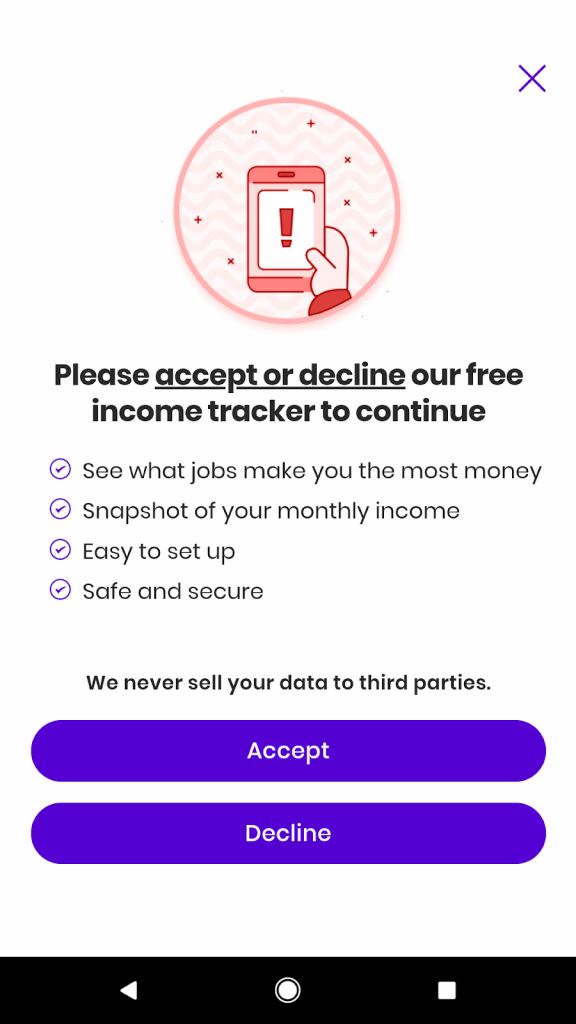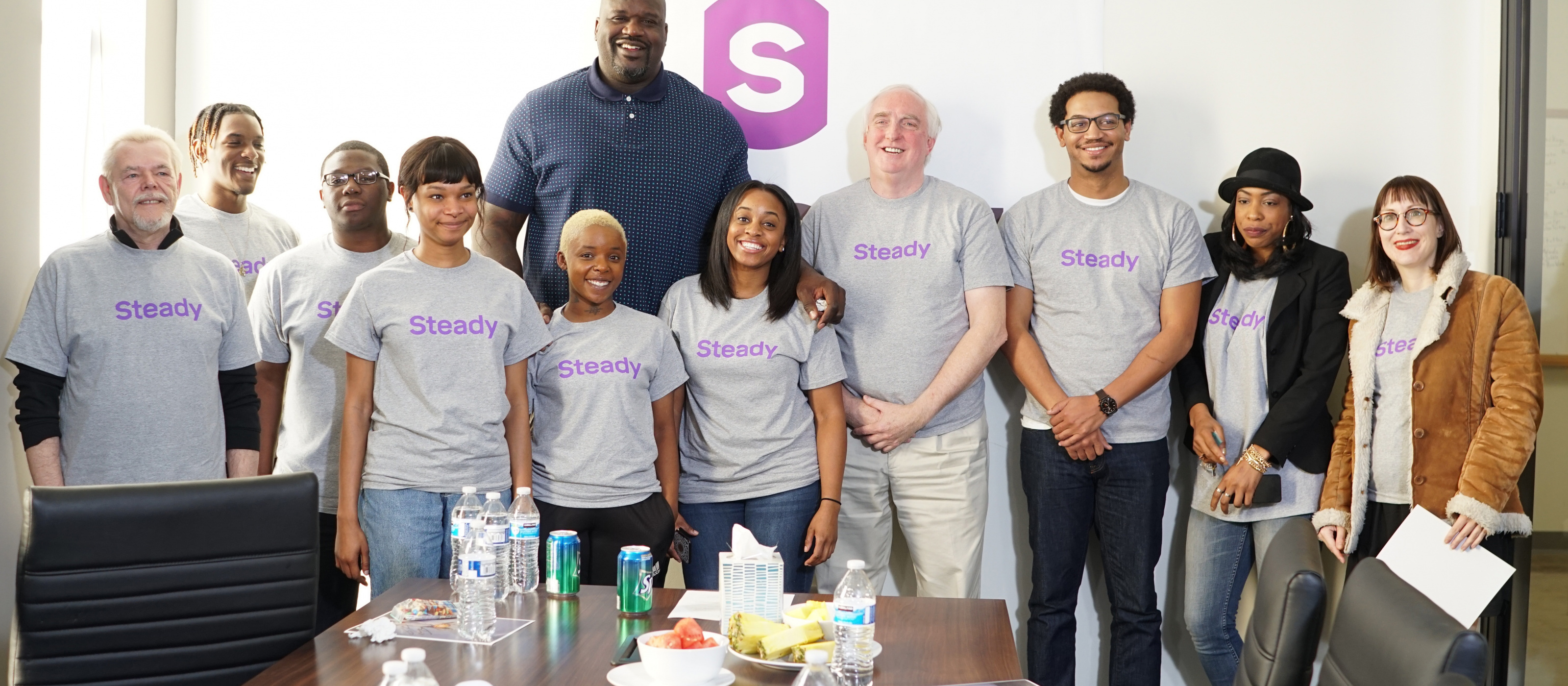This project is a part of Duke’s Common Cents Lab. The Common Cents Lab is funded by the MetLife Foundation. The project was led by Irrational Labs’ Richard Mathera.
The Challenge
You want to make some money, so you download an app — Steady, in this case — to help you find the best gigs around town. They offer you a way to pay you directly to your bank account, give you better job recommendations based on where you’re earning most, and offer you an income tracker to help see how much money you made and from where. You register on the app, but to get the extra features you’ve got to link your bank account–which seems like just more hassle–so you decide you’ll do it later.
Later turns to never, and you end up not linking your bank account — and not being able to take advantage of a couple of nice perks from the app.
Hypothesis
It’s a hassle to link a bank account to an app. Plus, you might not be very familiar with the app, so trust could be a factor. You may plan to link your account, but you’re busy now, so you procrastinate and plan to come back to it later but you forget as the million other things going on in your life seem more important, especially if you’re experiencing financial scarcity.
Experiment
We randomized a group of over 15,000 Steady users into either a control, a forced choice, or a missing information condition. Each condition received a one-time in-app pop-up encouraging them to link their bank account to the app.

Result: 125% Increase in Steady Users Who Link Their Bank Account
Both of the experimental conditions outperformed the control, and missing information increased the bank account link rate from 7.1% to 15.9% (+125%). The experiment on average across all conditions anecdotally outperformed a $10 incentive that Steady had previously offered.
By increasing the bank account linking rate, this enabled more Steady users to use features that help them better manage and improve their financial situation.
Keywords: Behavioral economics, behavioral design, gig work, earnings
